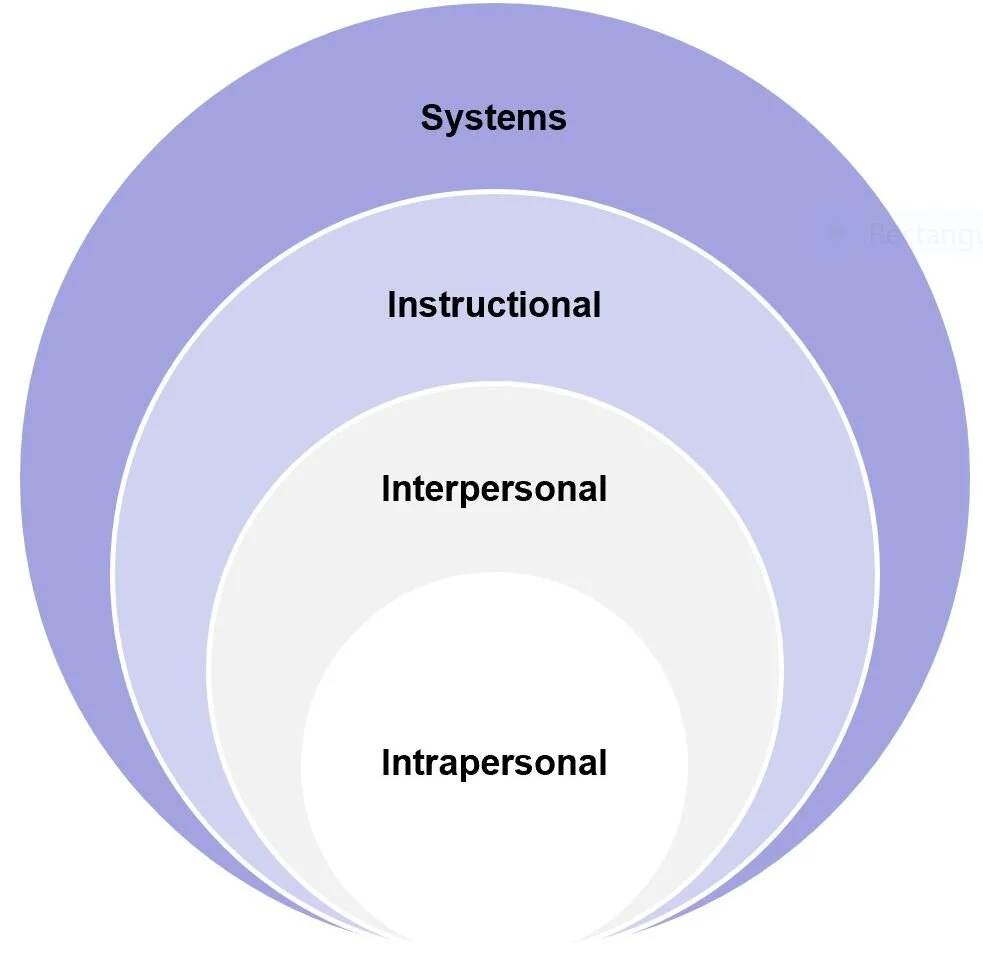As the anti-racism movement strengthens, so must efforts to prepare educators to respond through school structures, policies, and classroom practices. This is the rationale behind “Teaching Towards Social Justice in Secondary Education,” a graduate course I teach at the University of Michigan School of Education. My course examines social justice at four levels:
1. The Intrapersonal level concerns our individual attitudes and assumptions. Our goal here will be to engage in reflection, understand how beliefs impact actions, and make corresponding adjustments to your teaching practices that meet the differentiated needs of learners and that foster diverse students’ interest, effort and success. This supports the goal of becoming a reflective practitioner.
2. The interpersonal level focuses on relationships between individuals (students/students; student/teacher). Here, we want to create and sustain a classroom environment that attends to non-cognitive factors and social and emotional needs of students in relation to their academic success and participation in a learning community.
3. The Instructional level encompasses curriculum content, pedagogy, and instructional design. For this level, we’ll aim to develop awareness of what facilitates and hinders the interest, effort, and success of students from diverse backgrounds. (Motivating Learners). Another goal is to learn and incorporate a repertoire of pedagogies into your practice. Examples include culturally responsive caring, culturally responsive teaching, and place-based education.
4. The systems level is the ‘containing sphere’ for the other three, meaning that everything that happens in a school always occurs within a system. The containing system is not only the administrative and policy structures, but also the larger community and the biosphere which supports it all.
Throughout the course, students connect the levels to understand the larger context of teaching and learning. Key topics/questions include the following:
Is social justice an ethical obligation?
How does identity affect our experiences and perspectives?
What is the difference between discrimination and oppression?
What is the relationships among systemic racism, housing policies, and segregation?
How is structural racism replicated at schools?
Whose knowledge “counts”?
How can we engage peers in effective professional development?
What is the role of environmental- and climate justice?
How can we adapt our curriculum to incorporate principles of social justice?
Stay tuned for future blogs, where I’ll share readings, activities, and examples of my students’ work.
Questions? Feel free to contact me.

